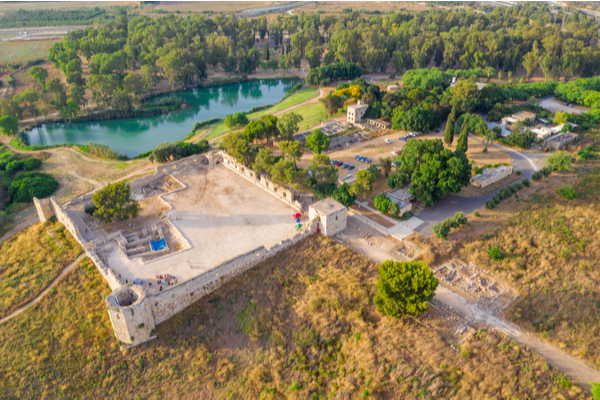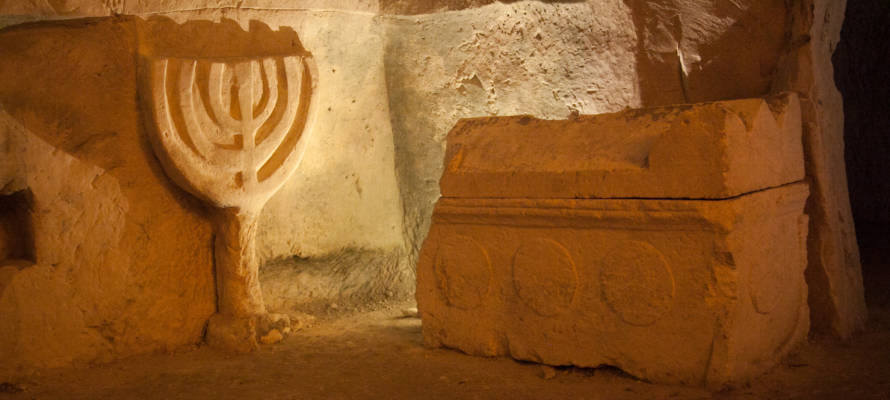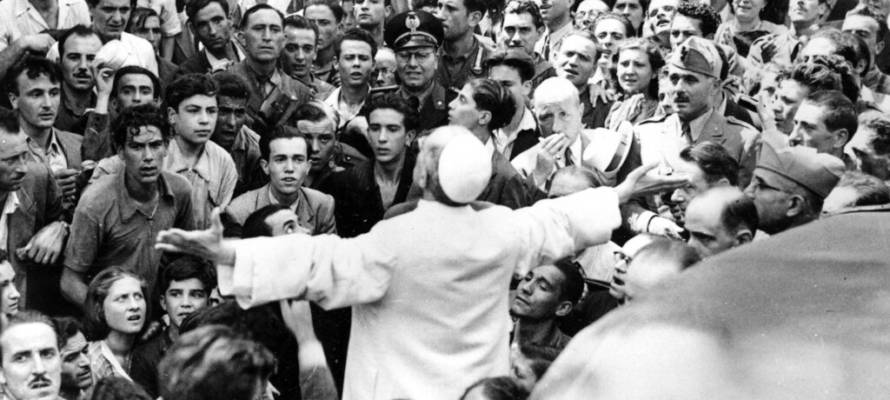Tel Aphek bears witness to incredible drama involving the Ark of the Covenant, Alexander the Great and the Jewish Revolt against Rome.
By Nosson Shulman, Licensed Tour Guide
“Israel went out to war against the Philistines, and they encamped beside Ebenezer, and the Philistines encamped in Aphek (1 Samuel 4:1)”
Today we are exploring a unique site that possesses everything a visiting tourist would like to see!
Tel Aphek is centrally located, has incredible historical significance (the events that occurred here are stranger than fiction) and is kid-friendly. The nature here is beautiful, and there are ponds with paddle boating, plenty of parking and it’s even inexpensive to visit.
Additionally, this wonderful place has well preserved ruins from the multiple empires which have ruled the country over the last 4000 years, an extreme rarity (although Israel is well known for having well preserved archology from the different empires, it is uncommon to find them all at one site).
One would think that tourists would be clamoring to visit, but this is not the case. Tourists seldom visit here, and even most Israelis are unaware of this location in their midst. So, let us now explore this site together!
The obvious question is why there are so many buildings and fortifications from different time periods here? The answer is that this location rests on an extremely strategic route. At one time, Egypt and Mesopotamia were the world’s superpowers, and the ancient highway which led from one to the other went through Aphek.
Although the entire road needed to be protected, empires prioritized control of this particular section (known as the Aphek Pass) because this location was very narrow (only two km in width). The Yarkon River begins just a few feet to the west of Aphek making the land swampy — hardly the place to build a road. Just a short distance to the east was the mountainous region of Samaria.
This was, therefore, the only place a road could be built. And whoever controlled this fort would essentially be in control of ancient travel.
The first to build here were the Canaanites (see Joshua 12:18). In the 15th century BCE, Pharaoh Thutmose III invaded Israel and conquered many cities, including Aphek. For the next 350 years (overlapping with the Israelite slavery in Egypt), Egypt ruled the land.
The pharaohs allowed the Canaanite city kings to continue their rule as long as they didn’t rebel — although Egyptian governors were appointed to keep the Canaanite kings in line.
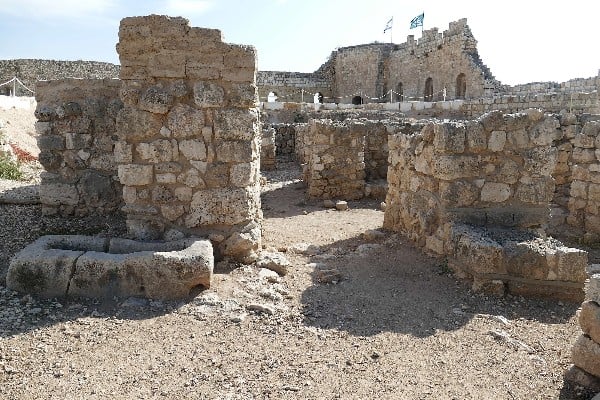
Gateway of the Egyptian Governor’s house, circa 1450-1100 BCE. The governor made sure the Canaanite kings didn’t get out of line The walls in the background with the flags were built later by the Ottoman Turks. (Wikimedia Commons)
Several ancient documents written in cuneiform (the ancient international language of that time) were found here.
When the Children of Israel left Egypt and Pharaoh’s army drowned in the Red Sea, Egypt lost control of its overseas empire, including Israel, and the 31 Canaanite city-states gained independence.
Aphek and the Ark of the Covenant
When Joshua entered Israel, he fought 31 kings. Although he defeated the King of Aphek, the city itself was taken by the Philistines, setting the stage for arguably the most dramatic battle in biblical history.
In the days of Samuel the prophet, the Israelites waged war against the Philistines (with the former encamped at nearby Ebenezer and the latter at Aphek).
The battle was a disaster for the Children of Israel, with around 4,000 troops having been slaughtered. To turn the tides of war, the Israelites went to Shiloh, then home to the Tabernacle to retrieve the sons of the High Priest along with the Ark of the Covenant as merit in battle with them (see Samuel I chapter 4).
G-d, however, had other plans. Thousands of Israelite soldiers were killed, Eli’s sons were killed (in fulfillment of G_d’s promise made in Samuel I chapter 3), and the Philistines captured the Ark of the Covenant.
The Ark of the Covenant would be dramatically returned to the Israelites several months later in Biblical Beit Shemesh (see Samuel I chapter 6).
Where Alexander the Great Shocked the World
During the time of Alexander the Great, one of the most shocking events in world history occurred in Aphek.
At the tender age of 20, Alexander became King of Macedonia and began his immensely successful campaign to take over the known world (circa 336 BCE). After conquering Lebanon, he entered Israel and was told falsely by the Kutim (Samaritans) that the Jewish people were revolting against Greece and that it would be in Alexander’s best interest to destroy Jerusalem and the Temple. (The Kutim hoped to rid the land of the Jews and take control).
Upon hearing this, Alexander was irate and went to Jerusalem to punish the “traitors.”
The leader of the Jewish people and High Priest at that time was Simon the Just. When Simon heard that Alexander was coming, he put on his priestly garments and walked with his entourage towards the powerful ruler all night long carrying torches. (According to Jewish law, it’s usually forbidden for the High Priest to wear his service garments outside the vicinity of the Temple. Since this was a matter of life and death, it was permitted and even required).

Alexander the Great, depicted in a mosaic circa 100 BCE (Wikimedia Commons)
They encountered each other at Aphek, where Alexander dismounted from his horse and did something that shocked everyone: He bowed down to the High Priest!
Especially stunned and disgusted by this display of respect were Alexander’s generals.
“Your Majesty, why do you bow before a Jew?” they asked.
Alexander replied “This is no mere Jew but one with the appearance of an Angel. Before I go into battle, when I am to be victorious, his vision appears to me. Should I not bow to him?”
Alexander than asked Simon, “Why have you come to see me?”
The High Priest wisely answered “Is it possible that the very Temple where we pray for you and your empire should be destroyed because of the misleading requests of these idolaters?”.
Alexander, upset about being lied to by the Kutim, told the High Priest “I am placing them in your hands to do with them as you so please.”
To celebrate, Alexander demanded that a statue of him be placed in the Temple (which is forbidden by Torah law). Simon the Just bravely answered that while he could not honor this request, he would decree that every Jewish boy born that year be given the name Alexander (which is how it became a Jewish name which is still used in Torah observant communities today).
The Jewish Revolt
Aphek reached its zenith during the Roman period when the infamous King Herod (Rome’s puppet king of Israel), greatly expanded it with major building projects in 9 BCE. He renamed it Antipatris after his father (he particularly chose this area because of its rich soil, abundant water and strategic location).
Because the city was conveniently situated on the Jerusalem-Caesarea route (the two most important cities in Israel of that era), this city played a large role in the Great Jewish Revolt (66-73 CE). When the Romans were on their way to put down the rebellion in Jerusalem, they were attacked here and badly defeated. The next year, General (and later Roman Emperor) Vespasian settled the score. After a three-day battle, the Romans finally conquered it and destroyed the city (although they would soon build it back up).
After the city was restored, it seems to have retained a major Jewish presence. According to Jewish sources, the righteous sage Rabbi Akiva had 24,000 students between the cities of Geva and Antipatris. The city continued to flourish until Byzantine times when a massive earthquake destroyed it (and most of Israel). The city would never recover, though in 1573 a massive Ottoman fortress was built to protect the Damascus-Cairo highway it stood on (with 100 horsemen and 30-foot soldiers stationed here).
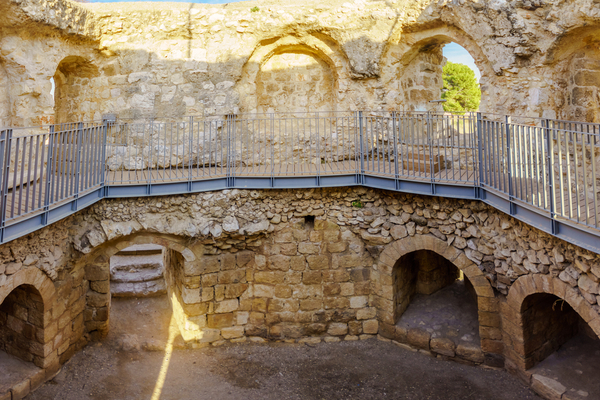
Inside the well-preserved Ottoman guard tower built in 1573. (Shutterstock)
Because Tel Aphek sits atop the source of the Yarkon River, the British (who took control from the Ottoman Turks in World War I) built an elaborate pumping station to pipe water to Jerusalem. To this day, Aphek is still the main source of fresh water for Jerusalem, though the originally British system is no longer in use.
The park has a lot to offer tourists of all ages and interests. If you are looking for something off the beaten track on your next trip to Israel, I highly recommend you visit here!
Nosson Shulman is a journalist and Licensed Tour Guide in Israel specializing in Biblical tours. To allow tourists to experience Israel during the Corona era, he created the new hit Israel tour video series, which brings Israel to the home of viewers by simulating actual tours. To check out his free sneak preview tour videos, click here. To view sample tour itineraries or to inquire about private tour opportunities with a personalized itinerary on your next trip to Israel, click here.

Do You Love Israel? Make a Donation to Show Your Support!
Donate to vital charities that protect Israelis and help inspire millions around the world to support Israel too!
Now more than ever, Israel needs your help to fight - and win - the battle of public opinion.
Anti-Israel bias and boycotts are out of control. Israel's enemies effectively use social media to incite brutal terror against innocent Israeli civilians. Please help us fight back!
CLICK HERE TO MAKE A DONATION



